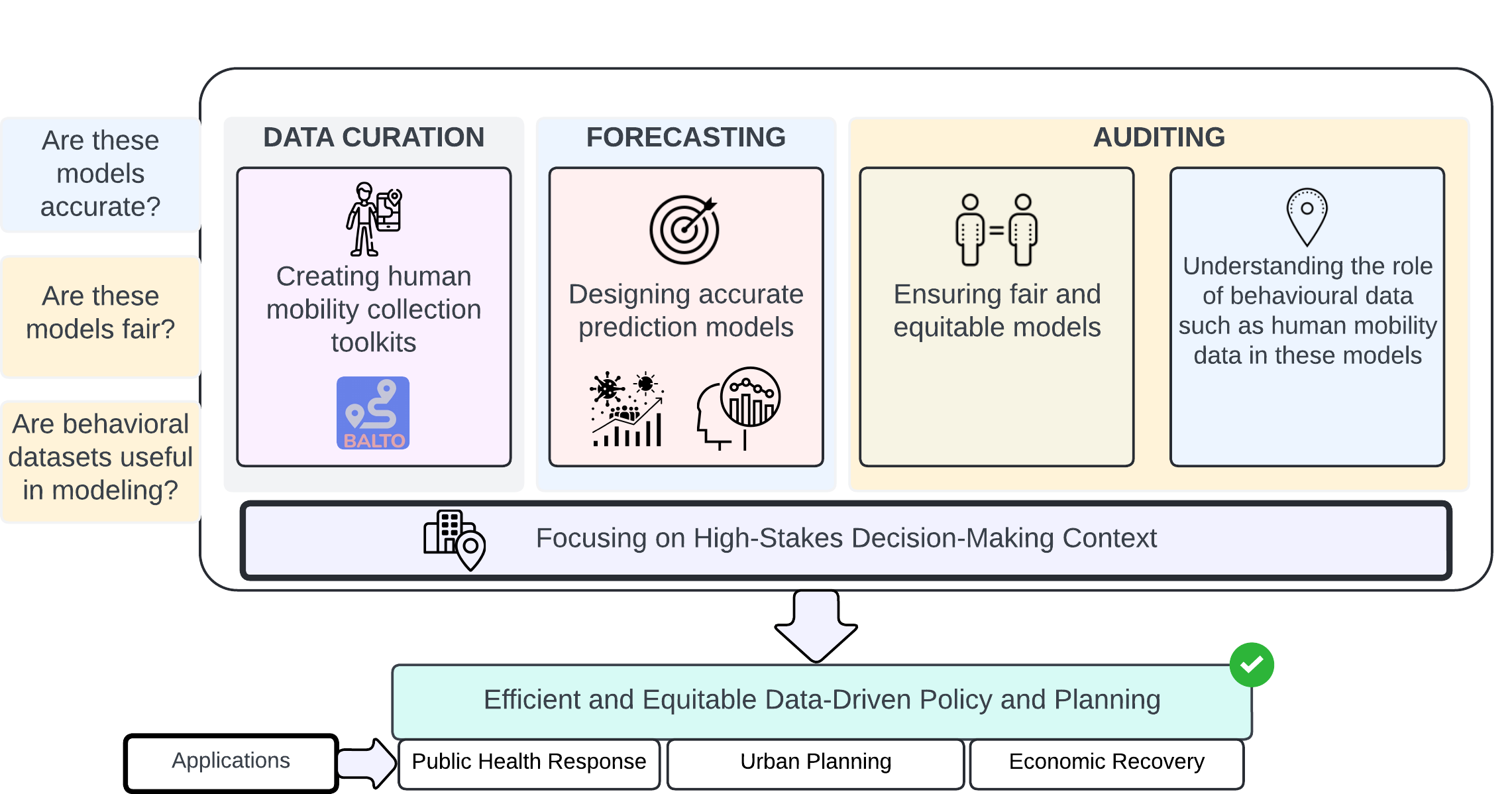Saad Mohammad Abrar
Introduction
Hi, I am Saad! I am a PhD candidate in Computer Science at the University of Maryland, College Park, working under the supervision of Dr. Vanessa Frias-Martinez in the Urban Computing Lab.
My research is in general is situated in computational social science, drawing methodologies from machine learning, statistics, and fairness methods. I aim to improve high-stakes decision-making by leveraging behavioral data to build accurate and trustworthy predictive systems.
My dissertation focuses on “Auditing the accuracy and fairness of COVID-19 forecasting and modeling tasks with mobility and contextual data”, where I develop frameworks to evaluate prediction models and mobility datasets for potential biases and performance disparities across different social determinants. Through my research, I aim to ensure that data-driven urban computing applications serve all communities equitably while maintaining high predictive performance. My research has led to 13 peer-reviewed publications (7 journal articles, 2 conference papers, 4 workshop papers) in venues such as PLOS One, EMNLP, International Journal of Social Research Methodology, ACM SIGSPATIAL, Computers Environment and Urban Systems, ACM JCSS, EPJ Data Science.
I completed my M.S. in Computer Science from UMD (2023) and my BSc in Computer Science and Engineering from Bangladesh University of Engineering and Technology (BUET) in 2017.
| Research Statement | Teaching Statement | Academic CV |
Recent News
- [November 2025] Our paper ProcVQA is live at EMNLP ‘25. [Paper,Code]
- [November 2025] Traveling to Minneapolis, MN for “ACM SIGSPATIAL ‘25”
- [September 2025] Two papers accepted: “Engaging underserved communities in smartphone-based research” at International Journal of Social Research Methodology, and “Beyond Mode Detection: Reconstructing Transit Itineraries” at ACM SIGSPATIAL 2025 Workshop.
- [August 2025] Paper “ProcVQA: Benchmarking Vision-Language Models” accepted at EMNLP Findings ‘25. Code available here.
- [February 2025] Paper on Auditing fairness of US COVID-19 Forecast Hub models accepted at PLOS One.
- [October 2024] Presented our work on Disparate recovery trajectories of small business restaurants across USA at NetMob 2024
Research Focus

Model: I design accurate predictors that leverage contextual and behavioral signals to improve forecasting in high-stakes settings. Through systematic evaluation, I determine when and how mobility and social media data enhance predictions across public health, crime, and related domains. [EPJ Data Science ‘22, JCSS ‘23, JMIR ‘23]
Mitigate: I develop comprehensive audit frameworks that uncover bias and failure modes in both data and models. By separating data-driven from model-driven failures, I create targeted fairness strategies that address disparities across demographics and geographies in predictive systems. [CEUS ‘23, JCSS ‘23, PLoS One ‘25, EMNLP Findings ‘25]
Measure: I build ethically-aware data collection toolkits that empower communities to gather and analyze their own mobility and experiential data. Through participatory design that prioritizes consent and transparency, I enable equitable decision-making in public transit planning. [COMPASS ‘23, IJSRM ‘25]
This research aims to enable efficient and equitable data-driven policy and planning, with direct applications in:
- Public Health Response
- Urban Planning
- Economic Recovery
- Transportation Equity
